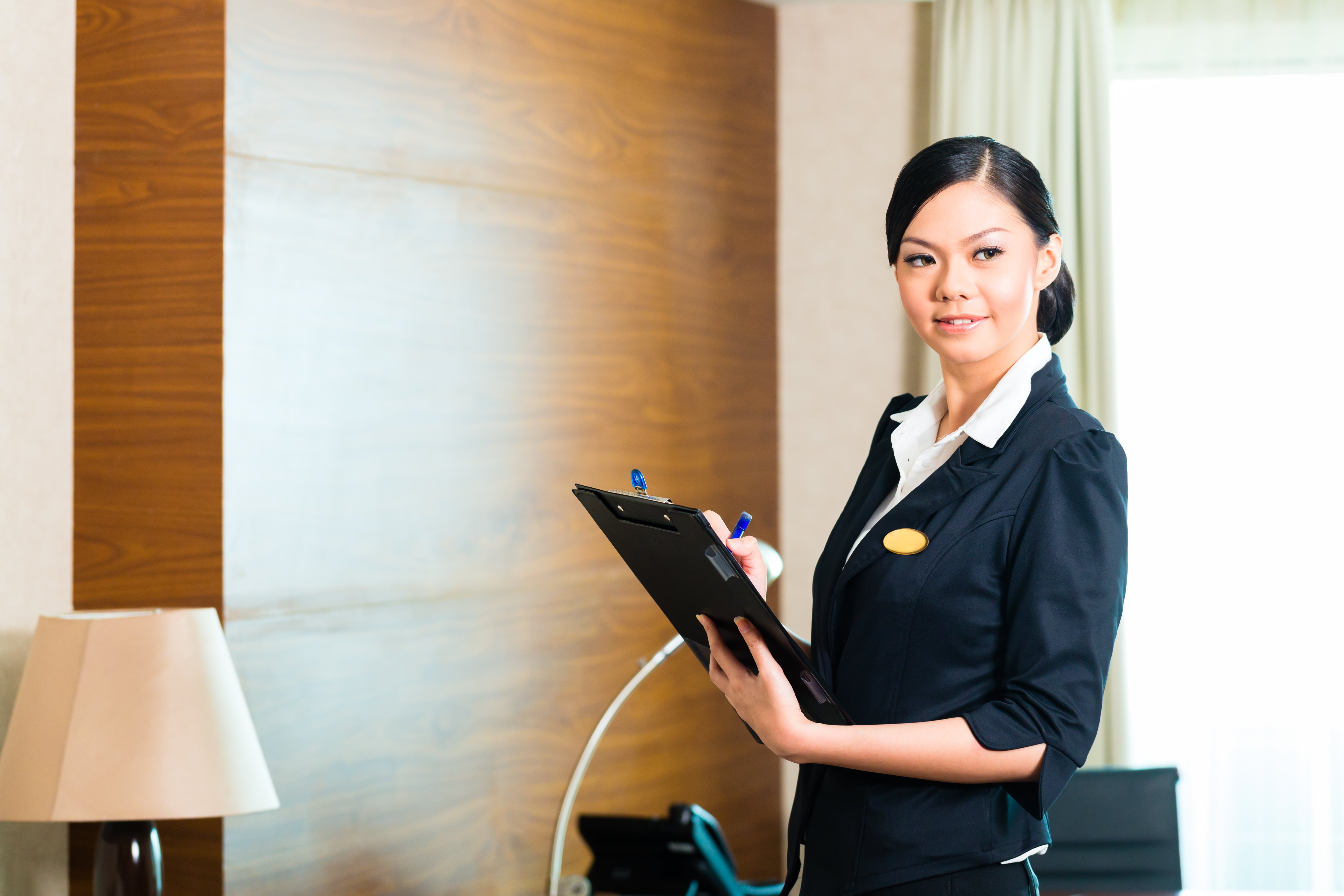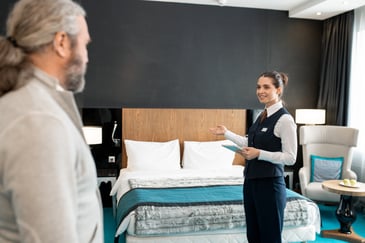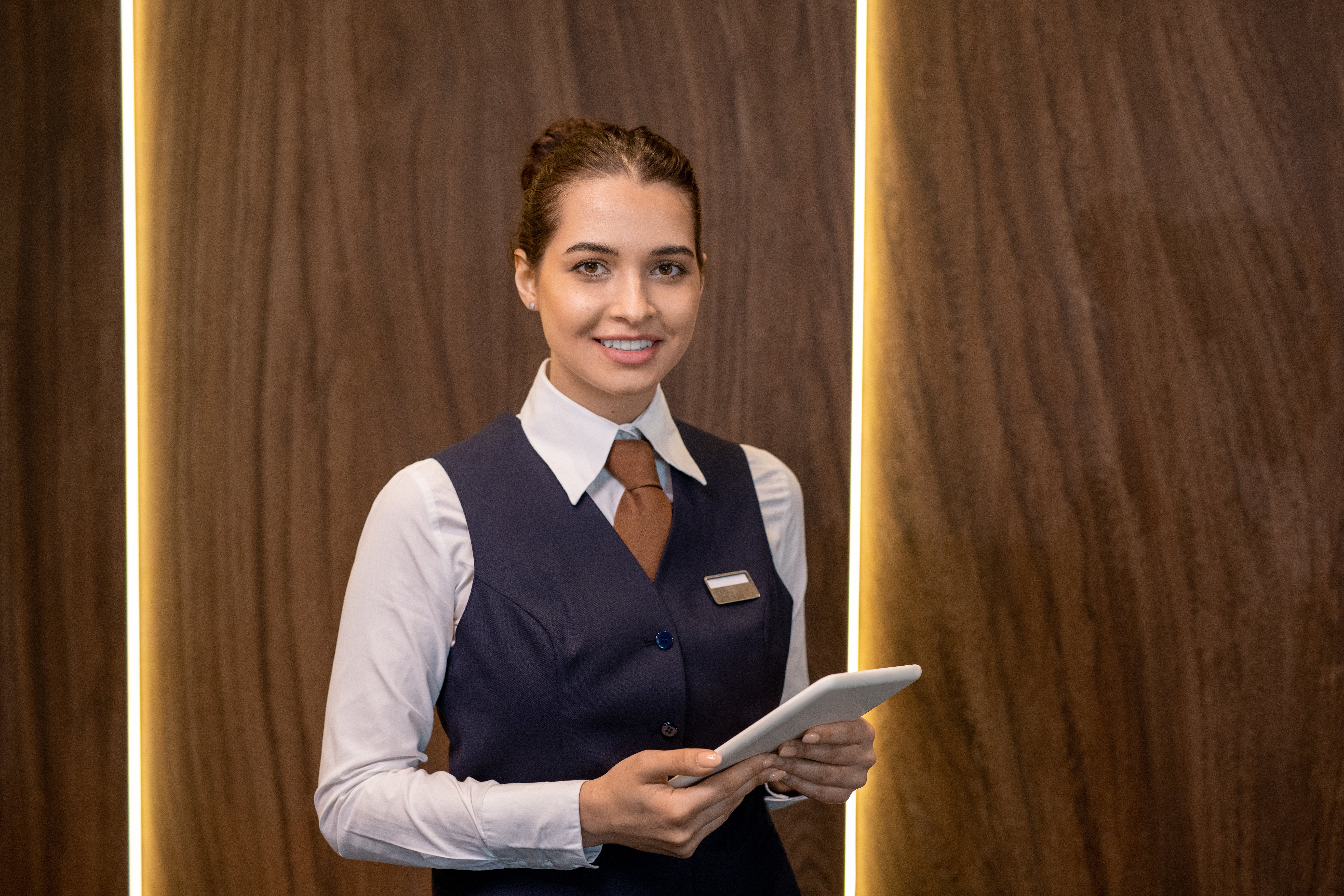5 Crucial Considerations for Your Hotel Property’s Assembly Point Plan
Is your hotel prepared to handle any emergency? On the off-chance that a fire breaks out or there’s a natural disaster, it’s important to get staff...
Hotels never know who they’re hosting. You’d like to assume all guests are regular people in town for a family or work trip. However, those in the hospitality industry know there are always a handful of difficult customers—rowdy, rude, or aggressive guests that can be downright dangerous for hotel workers. As a hotel owner or manager, you must look for ways to keep your staff safe as they move through rooms and interact with guests. The most often thought-of solution is also the easiest to implement: wearable panic buttons.
Panic button usage has skyrocketed as an increasing number of cities and states, and even some hotel brands, require hotel employees carry them on the job. In an emergency, you want to make sure your employees can be located, and get help, fast. An unobtrusive method of communication could be your employee’s lifeline.
What are panic buttons and what does "wearable" mean?
Wearable panic buttons are straightforward tech that can greatly improve the safety and well-being of your employees. To trigger an alarm, the employee pushes a button that alerts hotel security, managers, and even co-workers, depending on the system and set-up. “Wearable” refers to the size and ease of concealment. In some cases, as in an Apple watch, the device is literally wearable. Consumer devices may be designed to look like, and be worn as, jewelry. The most common design is the panic button we probably all envision, that looks like a key fob and can be attached to a belt so some other piece of clothing, slipped in a pocket, or yes, used as an actual key fob.
These devices are simple, but even with the most advanced security system in place, outfitting your staff with panic buttons can help them feel more at ease during their shifts. They have the added advantage of requiring no technical knowledge, so implementation is simple and quick to roll out. Even someone daunted by new technology—or an entire reluctant staff—will find panic buttons approachable.

How does a panic button work and why are they important for my hotel?
You know your housekeepers are some of the hardest-working individuals on your team. Unfortunately, your guests don’t always show them the respect they deserve. Housekeepers who encounter a disrespectful or dangerous guest, especially alone in a private room, are at risk of being harassed or assaulted. The ACLU cites a survey reporting that58 percent of hotel workers have experienced sexual harassment by a guest, ranging from men exposing themselves to full-on assault. Addressing this issue directly as a part of your hotel safety plan could save your staff from grave harm.
Obvious safety solutions like access control, lighting, surveillance cameras, and vaults focus on preventing or recording situations. Fire alarms and similar systems attract attention and alert people to evacuate, but how do you help a staff member trapped by a guest?
 Wearable panic buttons for hotel workers are a strong addition to employee safety plans because they provide individual staff with a simple system. With panic buttons your staff can alert security directly when there is an emergency and no time to communicate more detail.
Wearable panic buttons for hotel workers are a strong addition to employee safety plans because they provide individual staff with a simple system. With panic buttons your staff can alert security directly when there is an emergency and no time to communicate more detail.
There are other personal protection devices out there, such as pepper spray. However, a quasi-weapon like that is not your best option. While it might deter an aggressor, it will do little to de-escalate the situation. It can also be taken from your staff member and used against them. And if your brand, city, or state requires panic buttons, pepper spray won’t cut it.
Prompt intervention from your security team is the best-case scenario for an isolated staff member under threat from a guest. Most of the time, security’s presence alone will calm aggressive or agitated guests.
Many panic buttons use Bluetooth, Wi-Fi, or cellular networks to provide real-time tracking data to your security team. The technology is precise and easy to use. But most importantly, it sets in place a security system that prioritizes physical safety without escalating encounters. The button sets off a silent alarm (some may also function as a siren) alerting the team to the problem. The amount of detail the system sends and who that goes to vary by system. Some will just sound an alarm. Others send a location to key personnel, and a system like WrkSpot also provides both 2D and 3D mapping showing you where the employee is, identifying other employees in the area, and highlighting which exits are close and safe to use, so you can support your staff immediately. WrkSpot also allows alerts to be triggered via a mobile app that allows the user to specify the type of emergency and, by default, records 20 seconds of audio, so the person in trouble can communicate more detail. Knowing exactly what’s happening and having that additional information about the situation allows everyone to respond quickly and appropriately.
Hotel panic button regulations vary across states.
The pervasiveness of the problems hotel workers face is no secret. In fact, many hotel owners and managers are voluntarily stepping up their security measures across the board. However, enhancing your employee’s security might not be up to you, depending on your location.
 To curb the startling abuse within the industry, many cities and states—and even hotel brands themselves—are implementing rules that require you to provide panic buttons for hotel workers.
To curb the startling abuse within the industry, many cities and states—and even hotel brands themselves—are implementing rules that require you to provide panic buttons for hotel workers.
Staying up-to-date and compliant with security regulations is essential. Just as you must protect your staff from guests, you should protect your business from the potential consequences of falling out of line with local requirements.
Many of the actual laws are relatively new and they apply at the state or local level, so they can be challenging to keep track of. Check local laws or speak with authorities to get the specifics on what is required in your area. Cities and states that have already passed legislation requiring panic buttons (and in some cases, more comprehensive solutions) for hotel workers, include:
In Las Vegas and New York City union contracts impose their own safety obligations and require panic buttons. The protections required vary from place to place, so be sure to check specific requirements in your area.
Some new laws are still being adjudicated, while more continue to be introduced in states without current legislation. To stay compliant, hotel owners need to stay on top of what’s being proposed and enacted in the local jurisdiction of each of their hotels.
Technology can improve your employees' safety.
Panic buttons are important to your employee’s safety, and often critical to complying with safety regulations. But they are only part of the solution. To keep your people and your properties safe, you need to look at all of your processes and tools.

Many people in hospitality find an all-in-one hotel operations system helps them juggle all the challenges they face. Well-designed hospitality software automates time-consuming administrative tasks, increases sharing across devices, and even helps with customer service.
Some operations systems may also include built-in security measures beyond panic buttons that increase your employees’ safety and sense of security. Hotel operations technology like WrkSpot makes it easier to stay in compliance with local regulations and support your employees as they navigate the risks of their daily work.
At a minimum, protect your hotel employees with panic buttons.
Safety is a primary concern for hotel operators. Nearly every day your workers handle theft, bad behavior, harassment, and unauthorized visitors. Then, there are also the potential fines and penalties you face if you fail to comply with ever-changing local regulations.
You can’t filter bad guests out of your bookings, but you can prepare for the inevitable angry guest. No matter how big or small your business is, you don’t want to face financial penalties for security errors, and you certainly don’t want harm to come to your employees on the job.

Is your hotel prepared to handle any emergency? On the off-chance that a fire breaks out or there’s a natural disaster, it’s important to get staff...

As the world reopens, travelers are ready to hit the road and make up for a lost time - it's time for revenge travel! Hotels can prepare for the...

The hotel industry has a fine line to toe between investing too little in tech and having too many solutions entirely. Poorly selected and...